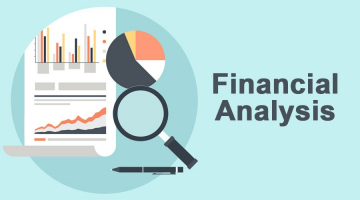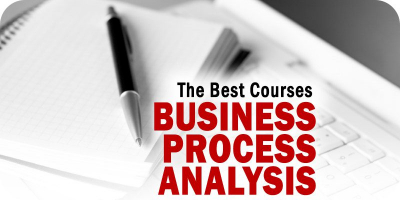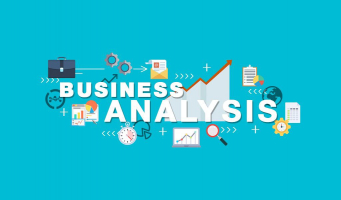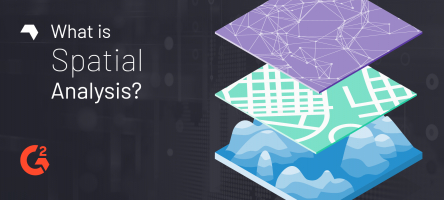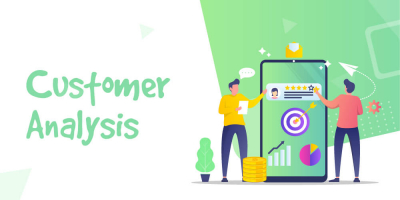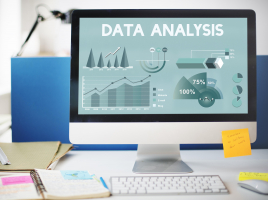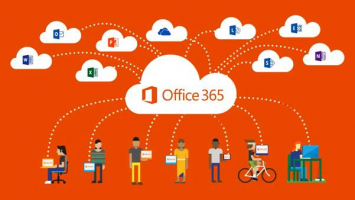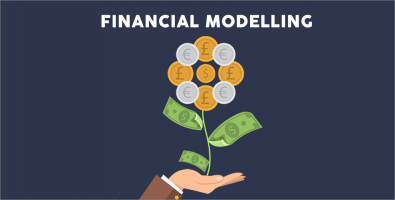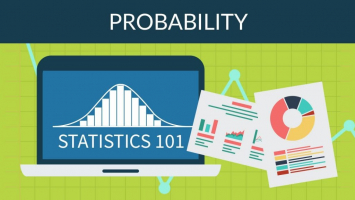Top 4 Best Online Statistical Analysis Courses
The collection and evaluation of data in order to find patterns and trends is known as statistical analysis. It's a part of the data analytics process. ... read more...Statistical analysis is useful for gathering research interpretations, statistical modeling, and survey and study design, among other things. It can also be beneficial to business intelligence businesses that deal with enormous amounts of data. To help you gain more understanding and knowledge in this field, Toplist has compiled the top best online Statistical Analysis courses, hoping to help learners choose the right courses for themselves.
-
There are statistics all over the place. There's a good chance it'll rain today. Unemployment rate trends over time. India's chances of winning the next Cricket World Cup. Football, for example, began as a bit of fun but has since developed into a large business. In medicine, statistical analysis plays an important role, not least in the wide and basic field of public health.
This specialism will provide you an overview of medical research and how – and why – you can turn a hazy idea into a scientifically testable hypothesis. You'll learn about sampling, uncertainty, variation, missing values, and distributions, among other statistical concepts. Then, using R, one of the most widely used and versatile free software packages around, you'll get your hands dirty analyzing data sets covering some major public health issues, such as fruit and vegetable consumption and cancer, diabetes risk factors, and predictors of death following heart failure hospitalization.
This specialism consists of four courses – statistical reasoning, linear regression, logistic regression, and survival analysis – and will be offered as part of the future Global Master in Public Health program, which will begin in September 2019. The speciality can be pursued independently of the GMPH and requires no prior understanding of statistics or the R programming language. All you need is an interest in medical issues as well as quantitative data.Each course will present essential ideas as well as a data collection that will be used as a working example throughout the course. Missing numbers and strange distributions are all too typical in public health data. Real or simulated data from real patient-level data sets will be used.
As you encounter typical data and analytical issues to solve and debate with your other learners, the emphasis will be on "learning through doing" and "learning through discovering." Before accessing the answers and explanations offered by the teachers, you'll have the opportunity to sort things out for yourself and with your peers.What you will learn
- Recognize the essential elements of statistical reasoning in order to justify statistics' crucial role in modern public health research and practice.
- As a first step toward more advanced analysis with R software, describe a given data set from scratch using descriptive statistics and graphical methods.
- In R, use appropriate methods to formulate and investigate statistical relationships between variables inside a data collection.
- Interpret the outcomes of your analysis and consider the role of chance and bias in explaining your findings.
Skills you will gain
- Statistical Thinking
- Survival Analysis
- Logistic Regression
- Data analysis with R
- Linear Regression
- Run basic analyses in R
- R Programming
- Understand common data distributions and types of variables
- Formulate a scientific hypothesis
- Correlation And Dependence
Instructors: Alex Bottle, Victoria Cornelius
Coursera rate: 4.7/5.0, 1.341 ratings
Offered by: Imperial College London
Enroll here: https://www.coursera.org/specializations/statistical-analysis-r-public-health

https://www.istockphoto.com/ 
https://www.patriotsoftware.com/ -
This is one of the best online statistical analysis courses. This course will go through the fundamentals of using data for estimating and evaluating hypotheses. This course will analyze both categorical and quantitative data, beginning with single-population procedures and progressing to two-population comparisons. You'll find how how to make confidence intervals. This course will also examine sample data to see if a theory about a parameter's value is supported by the data. The correct interpretation of inferential results will be a significant focus.
Learners will apply what they've learned in Python within the course environment at the end of each week. Learners will work through tutorials concentrating on specific case studies during these lab-based sessions to help consolidate the week's statistical ideas, which will include deeper dives into Python libraries such as Statsmodels, Pandas, and Seaborn. This course makes use of Coursera's Jupyter Notebook platform.
What you will learn
- Determine the assumptions that will be used to compute confidence intervals for each population parameter.
- In Python, create confidence intervals and understand the findings.
- When studying real data, go over how inferential processes are used and evaluated step by step.
- In Python, run hypothesis tests and evaluate the findings.
Skills you will gain
- Confidence Interval
- Python Programming
- Statistical Inference
- Statistical Hypothesis Testing
Instructors: Brenda Gunderson and 2 more instructors
Coursera rate: 4.6/5.0, 785 ratings
Offered by: University of Michigan
Enroll here: https://www.coursera.org/learn/inferential-statistical-analysis-python

https://www.forbes.com/ 
https://www.smallbusiness.wa.gov.au/ -
This course will prepare you for success by immersing you in the realm of statistics and data science. This is one of the best online statistical analysis courses.
Real-life examples will be used to teach you: This course will focus solely on applied statistics, rather than sitting through hours of theoretical content and striving to apply it to real-world situations. Taking theory and applying it to real-world issues using Python to offer you the knowledge and skills you need to succeed.
You'll get the following presentation-related outcomes: Calculating numbers is simple, and it is increasingly becoming the domain of machines rather than people. The instructors place a strong emphasis on analyzing and visualizing outcomes, incorporating visual output and graphical exploration into our workflows. Plus, supplementary content on how to spice up images for reports, publications, and presentations in order to stand out from the crowd.
The following are some of the modern tools and workflows used in this course: This isn't school, so we're not going to spend hours solving problems by hand for reinforcement. The educators use cutting-edge methodologies and code libraries to address their difficulties, incorporating features from the most recent software releases to make them as productive and efficient as possible.What you will learn
- Obtain a deeper understanding of data
- Python may be used to address both simple and complex statistics and machine learning applications.
- How to evaluate and display results using graphical exploration and visual output
- Learn how to use Python to perform hypothesis testing and how to quickly implement tests.
Who this course is for
- Anyone with a basic understanding of R who wants to advance their expertise.
- Anyone who has finished the R Programming A-Z course already.
- This course is not intended for full R beginners.
Instructor: Kirill Eremenko
Udemy rate: 4.5/5.0 (2,360 ratings)
Enroll here: https://www.udemy.com/course/python-for-statistical-analysis/

https://www.businessnewsdaily.com/ 
https://researchwritingexperts.com/ -
There is data everywhere. When using an ATM, visiting the web, or commenting on social media, this course generates data. In order to provide useful information that can aid any organization in making the proper decisions, statistics and statistical analytics enter the scene. So, a lot of people wonder: What is Statistical Data Analysis? Statistical Research: What is it? Simply put, statistical analytics improves your understanding of the facts by using past data. The first lesson in this course will cover descriptive analysis. We will then comprehend exploratory analysis. A Python demo using insurance data will follow. This is one of the best online statistical analysis courses.
To provide students with an education of the highest caliber, Great Learning has partnered with a number of highly regarded international universities, including the University of Texas at Austin. They collaborated to create India's top data analytics programs. Learn advanced data science and analytics skills to boost your career as a data scientist or analyst. The students who successfully complete the course will receive a Postgraduate Certificate from UT Austin in data science and business analytics. Additionally, this program offers top-notch instructors and mentors to give students a personalized learning experience.
Skills you will gain
- Statistical Analysis
- EDA
Syllabus of this course
- Descriptive Statistical Analysis
- Exploratory Analysis
- Insurance Company Demo - Introduction
- Insurance Company Demo - Explanation
Offered by: Great Learning Academy
Rating: 4.49/5.0 (154 Ratings)
Enroll here: https://www.mygreatlearning.com/academy/learn-for-free/courses/statistical-analysis

https://leverageedu.com/ 
https://unctad.org/







